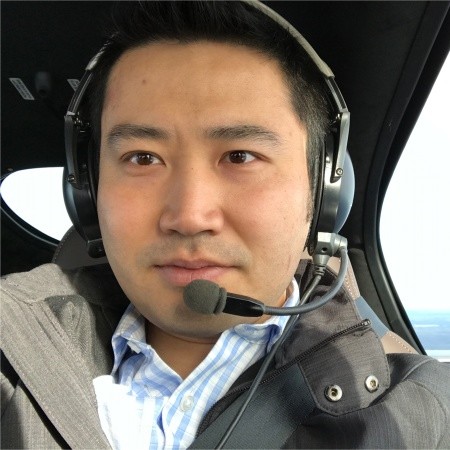“The Most Fascinating Thing about Financial Management is That it Connects All Aspects of a Company—or Even the Entire World.”
 Renfei Wang (MET’23)
Renfei Wang (MET’23)Executive Translator, Cirrus Aircraft
MS, Financial Management
What motivated you to earn your master’s degree at this point? Why did you choose to fulfill your goal at Metropolitan College?
In my role as translator for executives, board directors, and financial partners, I became interested in how finances work in a corporate setting as well as in the financial markets. In order to potentially grow my career in this field, I decided to pursue a master’s degree in financial management.
Boston University is arguably one of the world’s renowned universities. Honestly speaking, I had admired the school for decades and dreamed about becoming a student there. MET specifically has a strong program for financial management, because the course portfolio covers all aspects of the financial market, which has helped me build a vast but strong foundation in the financial investment industry.
What do you find most interesting about the discipline of financial management?
The most fascinating thing about financial management is that it connects all aspects of a company or even the entire world. For example, through loans, banks indirectly facilitate the development of a society by allocating the funds to where they are needed.
Congratulations on your high achievement in the Financial Management program and your Award for Excellence in your studies! Looking back, what do you consider to be the main ingredients of your success?
The schoolwork was usually challenging. In order to do a good job and have a solid learning experience, the first thing to remember is to never give up and always dig deeper to understand the underlying purpose of the work. The second ingredient is never hesitate to ask the questions. After considering the right questions, reach out to professors, TAs, or even classmates when it is deemed appropriate. The reason why I received this award is essentially due to these commitments and the support I received.
How were you able to successfully balance your studies with your commitments outside the classroom?
It was challenging. I did give up on tons of time spending with family and friends in order to finish my schoolwork. However, I did proactively plan small trips in between semesters with my wife. I want to take the opportunity to say thank you to my supportive community, too.
Was your success in the program driven by a particular outcome—such as professional advancement, educational achievement, personal satisfaction, or something else?
My personal satisfaction was the main driver of this endeavor. Working as a translator, I never dreamed of learning anything in the finance field. However, as I’ve translated for executives, I began to find it important that I know how finance and accounting work. With the encouragement of my wife, I decided to pursue a degree in finance. As I learned more about the discipline, I became very interested and hopefully I will utilize more of what I have learned in the future.
Is there a particular course or project that enhanced your experience in the Financial Management program? Please explain.
There are many, if not all, courses that enhanced my experience. For example, learning about the economic crisis caused by subprime mortgage, as well as mortgage-backed securities and collateralized debt obligations in Fixed Income Analysis (MET AD 719) was very interesting. As was using different options combinations to hedge risks (like strangle, straddle, butterflies, etc.) in Derivative Securities and Markets (MET AD 713). I also appreciated learning about the valuations and dramas in the process of merger and acquisition activities in Mergers and Acquisitions (MET AD 714).
Can you share any examples of skills, principles, or practices learned in the program that you were concurrently able to apply to your job?
There are so many examples. When I translate a business case of a project, not only do I get to translate it, but I am also able to review the financials, e.g., the net present value, the modified internal rate of return, and sensitivity analysis which were learned from my Corporate Finance (MET AD 731) course. As I translate finance meetings, I am able to utilize analytical languages professionally on the statements; for example, balance sheet, cash flow, and profit and loss from the Financial and Managerial Accounting (MET AD 630) course.
What’s next for you? Would you say that your program helped prepare you for the next phase of your life/career/education?
I would love to do more in my new career with the knowledge learned in the program. Even though it is difficult to forecast a new career, what I learned from the program can certainly be beneficial when I plan for retirement—achieving saving goals with annuities, enhancing my investment portfolio using knowledge from Investment Analysis and Portfolio Management (MET AD 717), and what depreciation schedule to use from my accounting course.
You were recognized by faculty and peers for your hard work and dedication to the Financial Management program. What words of advice or encouragement have served as a guiding principle, or simply inspiration, for you? Any words of wisdom you would like to pass along to students starting in the program?
Always keep at it and never give up. It will all make sense, and everything is connected. After all, finance is about channeling the functionality of society through all its aspects.
Is there anything else you would like to add?
I would like to take this opportunity to say thank you to all my professors, TAs, and classmates for their support throughout the journey. It was truly a life-changing learning experience, and I am honored to be part of the MET family.